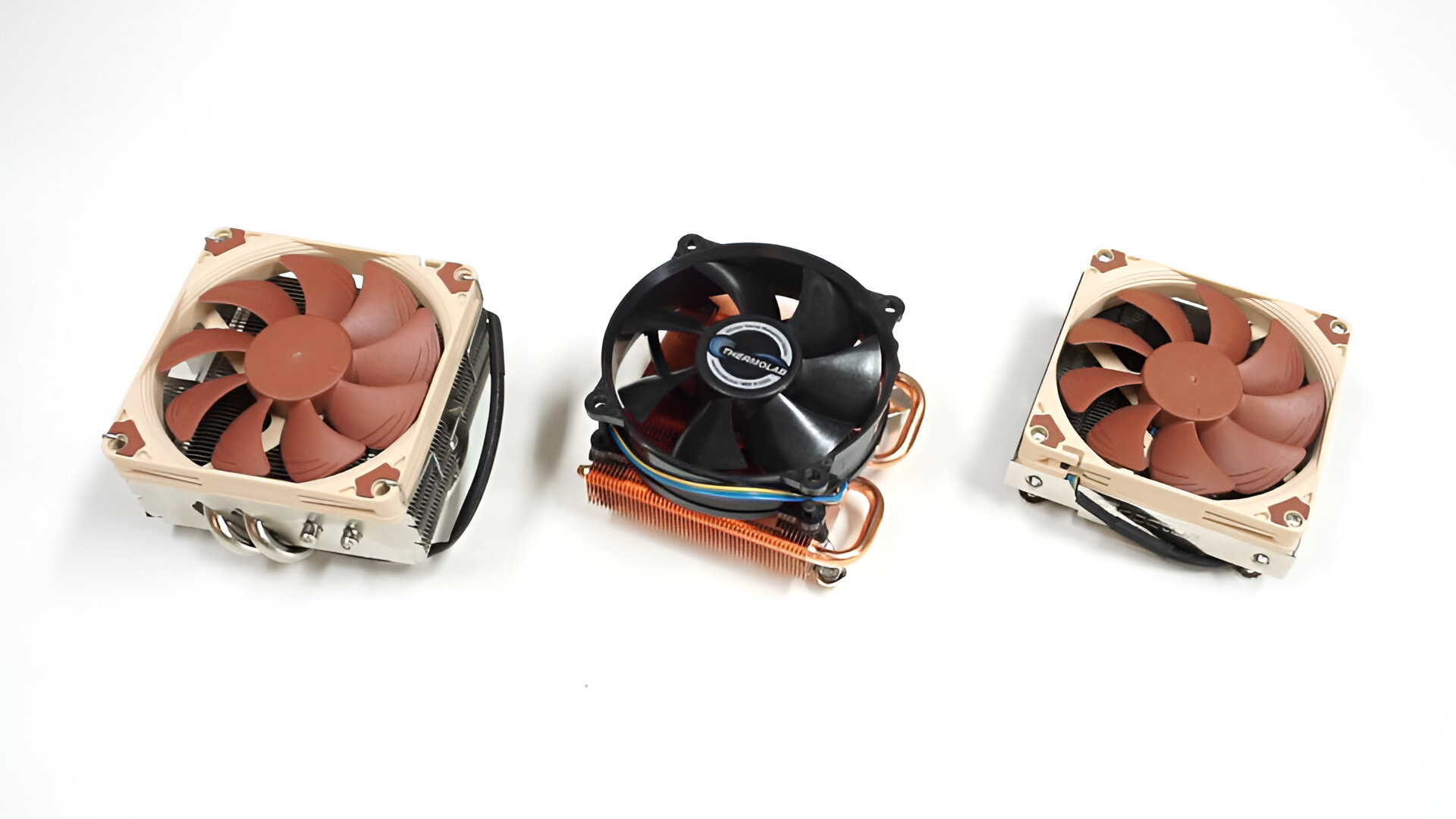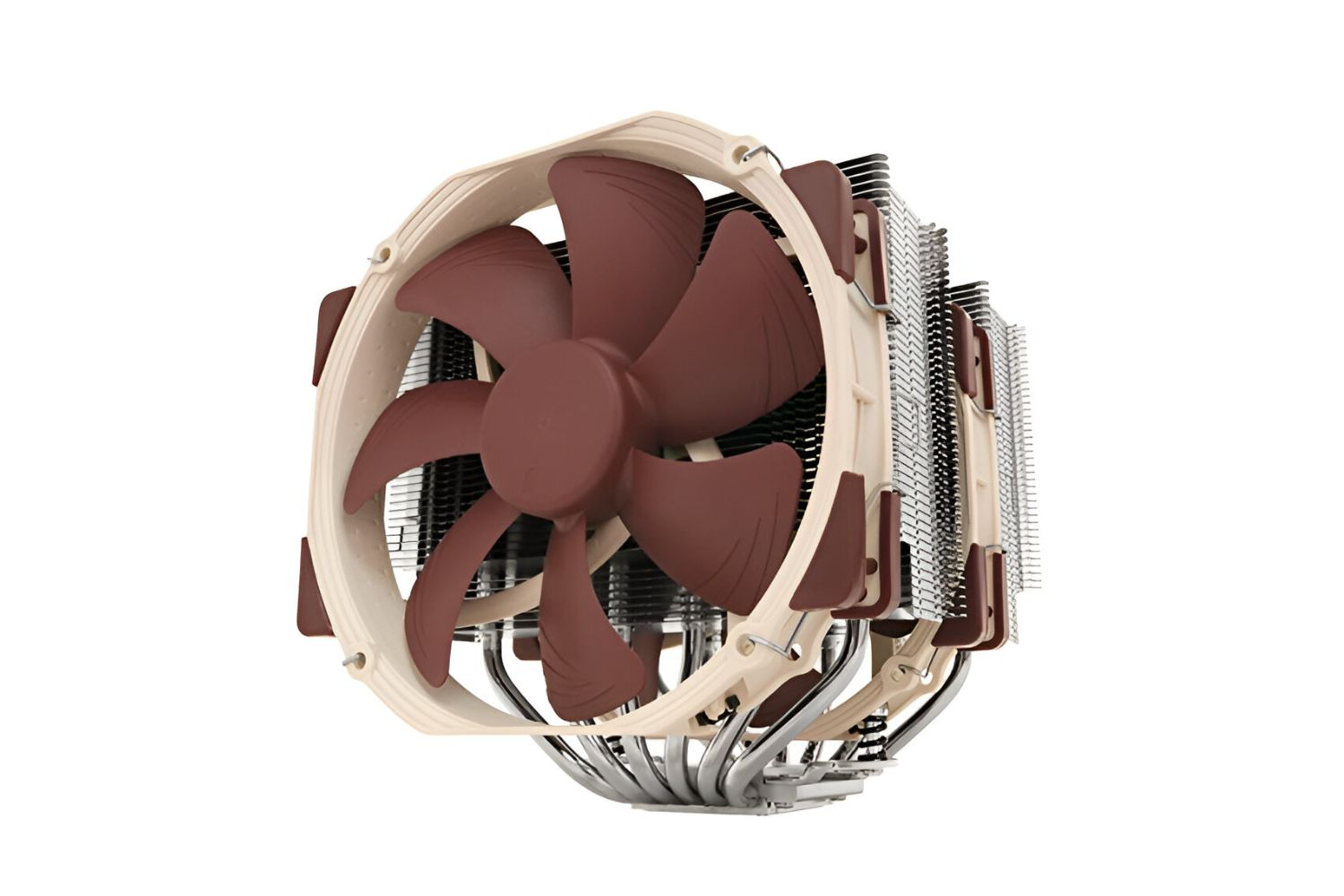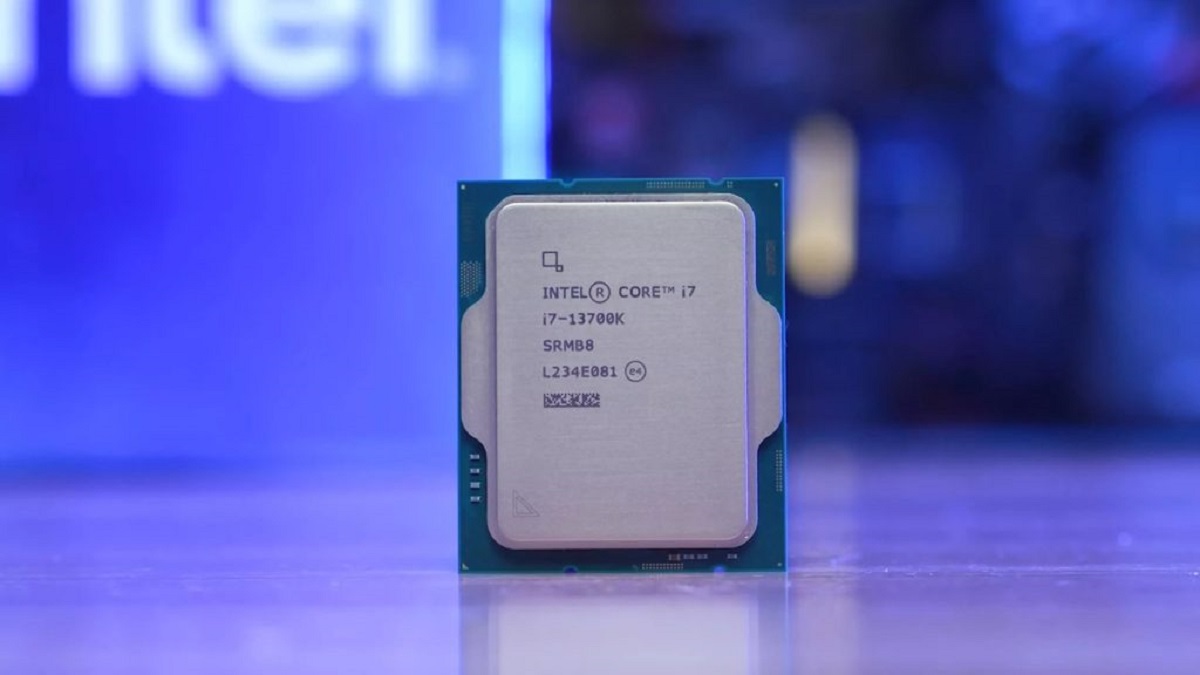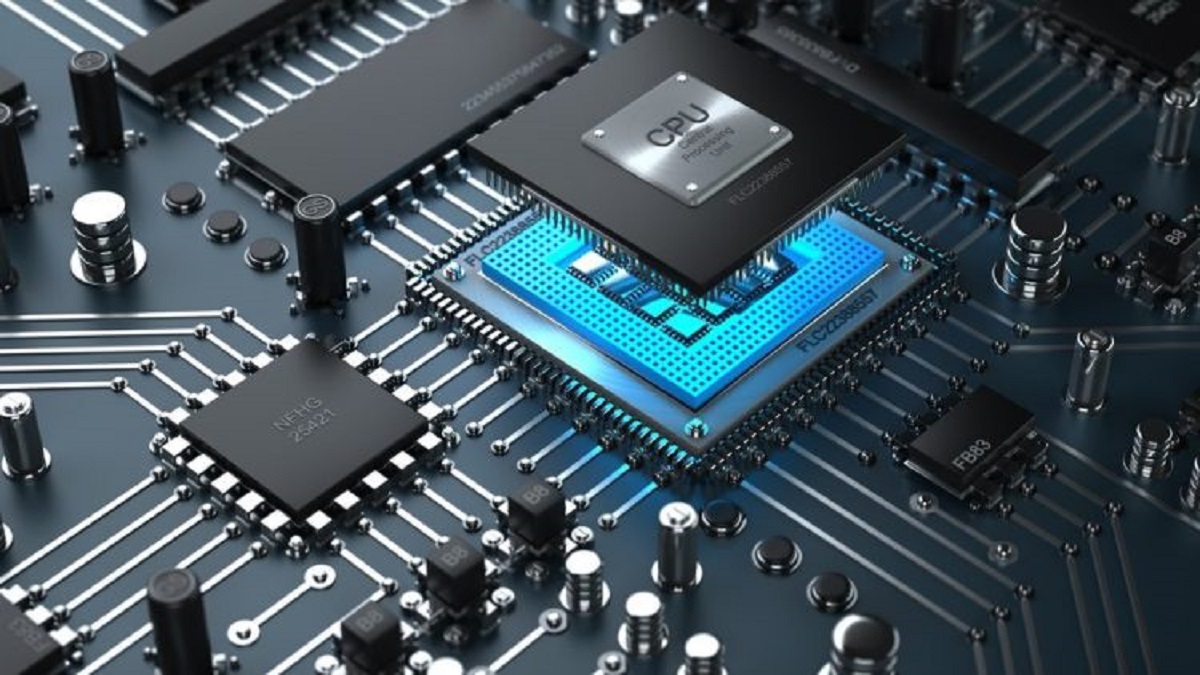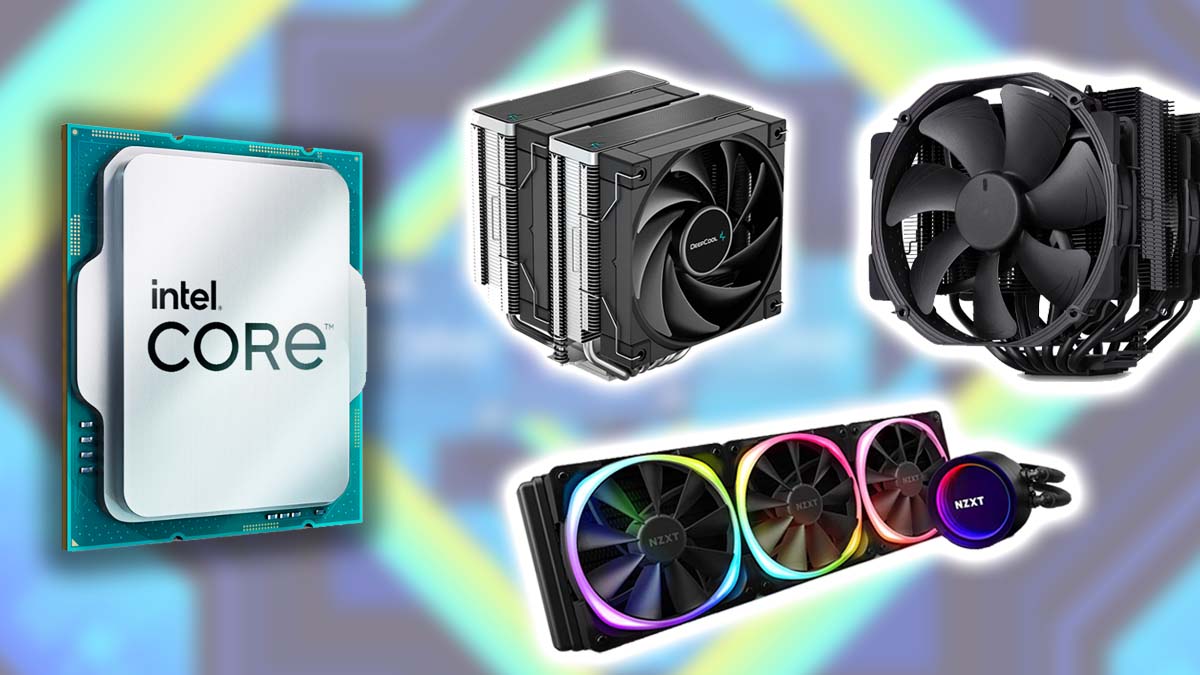Introduction
Welcome to our guide on choosing the right CPU cooler for your Core i7 8700 processor. When it comes to keeping your CPU cool, having an efficient and reliable cooler is essential. With a wide range of options available, from air coolers to liquid coolers, it can be challenging to determine which one is best suited for your needs.
The Core i7 8700 is a powerful processor designed for demanding tasks, such as gaming, photo and video editing, and streaming. It packs six cores and twelve threads, capable of delivering exceptional performance. However, with great power comes great heat generation, which is why selecting an appropriate cooler is crucial.
In this article, we will delve into the world of CPU coolers and explore the two primary types: air coolers and liquid coolers. We will discuss the benefits and drawbacks of each, as well as provide recommendations for the top coolers specifically compatible with the Core i7 8700.
Whether you are an avid gamer looking to optimize your system’s performance or a content creator seeking smooth multitasking capabilities, choosing the right CPU cooler can make a significant difference in the overall stability and longevity of your setup. Not only does it keep your processor operating at optimal temperatures, but it also contributes to reducing noise levels and improving overall system efficiency.
By the end of this guide, you will have a clear understanding of the different types of CPU coolers available for the Core i7 8700 and be equipped with the knowledge to make an informed decision that suits your needs and budget.
Air Coolers
Air coolers are the more traditional and commonly used type of CPU cooler. They consist of a heatsink and one or more fans that circulate air to dissipate the heat generated by the CPU. Air coolers are typically more affordable than liquid coolers and are relatively easy to install.
One of the key advantages of air coolers is their simplicity. They don’t require any additional components or maintenance, making them hassle-free to use. Air coolers also tend to have a longer lifespan compared to liquid coolers, as they have fewer moving parts and are less prone to leaks or failures.
When it comes to performance, air coolers can be quite effective, especially when paired with a capable heatsink and fan combination. They provide adequate cooling for most applications, including gaming and content creation on the Core i7 8700. However, if you plan on overclocking your processor or engaging in extremely demanding tasks, liquid coolers may offer more efficient cooling capabilities.
Another advantage of air coolers is their compatibility with a wide range of CPU sockets. Most air coolers come with multiple mounting brackets, making them suitable for various CPU models and generations. This flexibility allows you to reuse the cooler if you upgrade your system in the future.
However, air coolers do have some drawbacks. Due to their size and design, they can take up more space inside your PC case, limiting clearance for other components. Additionally, air coolers tend to be bulkier and heavier than liquid coolers, which may cause compatibility issues with certain smaller cases or motherboards.
Furthermore, air coolers can generate more noise compared to liquid coolers, especially under heavy loads. While this might not be an issue for some users, those seeking a quieter computing experience may opt for a liquid cooler.
In summary, air coolers are a reliable and budget-friendly option for cooling your Core i7 8700 processor. They provide adequate cooling performance for most applications and are compatible with a wide range of CPU sockets. However, if you have specific requirements for extreme overclocking or prefer a quieter system, you may want to consider the alternative – liquid coolers.
Liquid Coolers
Liquid coolers, also known as all-in-one (AIO) coolers, have gained popularity in recent years due to their efficient cooling capabilities and sleek aesthetics. Unlike air coolers, which use air to dissipate heat, liquid coolers utilize a closed-loop system that circulates liquid coolant to regulate CPU temperatures.
One of the primary advantages of liquid coolers is their superior thermal performance. The liquid coolant absorbs heat from the CPU and transfers it to the radiator, where it is then dissipated by fans. This allows for more effective cooling, especially during intense gaming sessions or CPU-intensive tasks on the Core i7 8700.
Additionally, liquid coolers are known for their quiet operation. Since the heat is transferred to the radiator, which is typically mounted on the top or rear of the case, the noise generated by the fans remains isolated from the CPU. This results in a quieter overall system, perfect for users who prioritize a silent computing experience.
Another benefit of liquid coolers is their compact design. Unlike air coolers, which can be quite large and bulky, liquid coolers feature a sleek and minimalistic design. This not only saves space inside your PC case but also provides better compatibility with smaller cases or motherboards that have limited clearance.
However, it’s important to note that liquid coolers do come with a couple of considerations. Firstly, they tend to be more expensive than air coolers, as they require additional components, such as the radiator and pump. Secondly, while liquid coolers typically have a long lifespan, they may be more prone to leaks or failures compared to air coolers. However, this risk can be mitigated by choosing reputable brands and ensuring proper installation.
When selecting a liquid cooler for your Core i7 8700, it’s crucial to consider the size of the radiator, the number and quality of fans, and the overall compatibility with your case and motherboard. It’s recommended to choose a cooler with a larger radiator and high-quality fans for optimal cooling performance.
In summary, liquid coolers offer superior thermal performance, quiet operation, and a sleek design compared to air coolers. They are an excellent choice for users who demand efficient cooling and prefer a quieter computing experience. However, they come at a higher cost and may present a slight risk of leaks or failures.
Benefits of Air Coolers
Air coolers offer several benefits that make them a popular choice for CPU cooling, especially for the Core i7 8700. Here are some key advantages of using air coolers:
1. Cost-Effective: Air coolers are generally more affordable than liquid coolers. They provide a budget-friendly option for those looking to keep their Core i7 8700 processor cool without breaking the bank.
2. Ease of Installation: Installing air coolers is relatively straightforward and requires minimal technical knowledge. Most air coolers come with universal mounting brackets that are easy to attach to the CPU socket.
3. Longevity: Air coolers have a longer lifespan compared to liquid coolers. With fewer moving parts and a simple design, air coolers are less prone to leaks or failures.
4. Compatible with Multiple CPU Sockets: Air coolers are designed to be compatible with a wide range of CPU sockets. This means that if you upgrade your system in the future, you can likely reuse the cooler without any compatibility issues.
5. Adequate Cooling Performance: Air coolers do a commendable job of keeping your Core i7 8700 processor cool, even during heavy usage. They are capable of dissipating heat effectively, ensuring stable performance and preventing thermal throttling.
6. Lower Noise Levels: Compared to liquid coolers, air coolers tend to generate less noise. Although they do produce some noise under load, it is generally quieter than the noise generated by liquid cooler pumps.
7. Compact Design: Air coolers come in various sizes to accommodate different PC cases. They are available in low-profile designs, making them suitable for small form factor builds where space is limited.
8. Minimal Maintenance: Air coolers require minimal maintenance. Cleaning the dust buildup on the heatsink and fan blades periodically is usually sufficient to ensure optimal performance.
In summary, air coolers offer a cost-effective, easy-to-install, and reliable cooling solution for the Core i7 8700. They provide adequate cooling performance, compatibility with multiple CPU sockets, and a longer lifespan compared to liquid coolers. If you are on a budget or prefer a simpler cooling setup, air coolers are a great option.
Benefits of Liquid Coolers
Liquid coolers, also known as all-in-one (AIO) coolers, offer several advantages that make them an attractive choice for CPU cooling, especially for the Core i7 8700. Here are some key benefits of using liquid coolers:
1. Superior Cooling Performance: One of the biggest advantages of liquid coolers is their exceptional cooling performance. The liquid coolant absorbs heat from the CPU and dissipates it through the radiator, resulting in more efficient cooling compared to air coolers. This is particularly beneficial for users engaging in demanding tasks or overclocking the Core i7 8700.
2. Quieter Operation: Liquid coolers are known for their quiet operation. Since the heat is transferred to the radiator, the noise generated by the fans remains isolated from the CPU. This provides a quieter computing experience, perfect for users who prioritize a silent environment.
3. Compact Design: Liquid coolers have a compact design, which makes them suitable for smaller PC cases or motherboards with limited clearance. They don’t occupy much space within the case and provide better compatibility with other components.
4. Efficient Heat Dissipation: The closed-loop system of liquid coolers allows for efficient heat dissipation. The liquid coolant absorbs heat from the CPU and carries it away to the radiator, where it is dissipated by the fans. This ensures that the Core i7 8700 remains at optimal temperatures even under heavy loads.
5. Aesthetic Appeal: Liquid coolers often feature a sleek and modern design, enhancing the visual appeal of your system. They come with RGB lighting options, customizable pump covers, and stylish cooling blocks, allowing you to create a visually stunning setup.
6. Potential for Overclocking: Due to their superior cooling capabilities, liquid coolers provide an excellent platform for overclocking your Core i7 8700. They can handle the increased heat generated by overclocking, ensuring stable performance and mitigating the risk of thermal throttling.
7. Low Maintenance: Liquid coolers require minimal maintenance. Once properly installed, they typically operate for extended periods without the need for any additional maintenance or cleaning.
8. Temperature Control: Liquid coolers offer better temperature control compared to air coolers. They provide more precise and consistent cooling, ensuring that the Core i7 8700 operates within safe temperature ranges even during intensive tasks.
In summary, liquid coolers offer superior cooling performance, quieter operation, a compact design, and the potential for overclocking. They provide an aesthetically pleasing solution for cooling the Core i7 8700 and offer better temperature control compared to air coolers. If you are willing to invest in a more efficient and visually appealing cooling solution, a liquid cooler is an excellent choice.
How to Choose the Right CPU Cooler for Core i7 8700
Choosing the right CPU cooler for your Core i7 8700 is crucial to ensure optimal performance and temperature management. Here are some factors to consider when selecting a CPU cooler:
1. Cooling Performance: The cooling performance of the CPU cooler is paramount. Consider the TDP (thermal design power) rating of your Core i7 8700 and choose a cooler that can efficiently dissipate the heat generated by the processor under heavy loads. Air coolers with larger heatsinks and fans, or liquid coolers with larger radiators and higher-quality fans, tend to offer better cooling performance.
2. Form Factor and Case Compatibility: Consider the form factor of your PC case and the clearance space available for the CPU cooler. Air coolers may have a larger physical footprint and could potentially interfere with other components. Liquid coolers, being more compact, can be a better choice for smaller cases or builds with limited space.
3. Noise Level: Consider the noise level of the CPU cooler. Air coolers tend to produce more noise due to the fan operation, while liquid coolers offer quieter operation as noise is isolated to the radiators. Look for coolers with low noise ratings if a quiet computing environment is a priority for you.
4. Overclocking Potential: If you plan to overclock your Core i7 8700 for enhanced performance, a cooler that can handle the increased heat generated is essential. Choose a cooler with robust cooling capabilities and ensure it can maintain stable temperatures even under overclocked conditions.
5. Budget: Consider your budget when selecting a CPU cooler. Air coolers generally offer a more cost-effective solution, while liquid coolers can be pricier due to additional components. Determine your budget range and look for coolers that provide the best value for money within that range.
6. Aesthetics: If the visual appeal of your system is important to you, consider the aesthetics of the CPU cooler. Both air coolers and liquid coolers offer options with stylish designs and customizable RGB lighting, allowing you to match your system’s aesthetics.
7. Brand and Reputation: Consider choosing CPU coolers from reputable brands known for their quality and reliability. Look for customer reviews and ratings to gain insights into the performance and durability of different coolers.
By considering these factors, you can choose the right CPU cooler for your Core i7 8700 that provides efficient cooling, compatibility with your case, and meets your specific requirements within your budget. Remember to balance performance, noise level, aesthetics, and overclocking potential to make an informed decision.
Factors to Consider
When choosing a CPU cooler for your Core i7 8700, there are several important factors to consider. These factors will help you narrow down your options and select the most suitable cooler for your needs:
1. Cooling Performance: The primary function of a CPU cooler is to dissipate heat and keep your processor at optimal temperatures. Consider the TDP (thermal design power) rating of your Core i7 8700 and choose a cooler that can handle the heat generated by the processor, especially if you plan on overclocking or engaging in intensive tasks.
2. Form Factor: Consider the form factor of the cooler and the available space inside your PC case. Make sure the cooler is compatible with your case’s dimensions and the CPU socket on your motherboard. Some high-end air coolers can be quite large and may cause clearance issues with other components, so it’s important to check the dimensions before making a purchase.
3. Noise Level: Different coolers produce varying levels of noise. If a quiet computing experience is important to you, look for coolers with low noise ratings. Liquid coolers, with their isolated pump and radiator design, tend to offer quieter operation compared to air coolers.
4. Budget: Set a budget for your CPU cooler and look for options that fit within that range. Air coolers generally tend to be more affordable, while liquid coolers come at a higher price point due to their additional components. However, keep in mind that investing in a high-quality cooler can contribute to the longevity and stability of your system.
5. Compatibility: Ensure that the CPU cooler you choose is compatible with your Core i7 8700 processor. Check for compatibility with the CPU socket on your motherboard and any additional clearance requirements. Some coolers come with multiple mounting brackets to accommodate different CPU sockets, providing more flexibility for future upgrades.
6. Aesthetics: If the visual appeal of your system is important to you, consider the aesthetics of the CPU cooler. Both air coolers and liquid coolers come in various designs, finishes, and lighting options. Look for coolers that match your system’s overall aesthetic and provide customizable options, such as RGB lighting, to enhance the appearance of your build.
7. Brand Reputation: Consider the reputation and customer reviews of the CPU cooler brands you are considering. Look for well-established brands known for their quality and reliability. Research customer feedback and ratings to gain insights into the performance and durability of different coolers.
By taking these factors into account, you can make an informed decision when choosing a CPU cooler for your Core i7 8700. Balance the cooling performance, compatibility, noise level, budget, aesthetics, and brand reputation to find the best cooler that meets your specific requirements and preferences.
Top Air Coolers for Core i7 8700
When it comes to air coolers for the Core i7 8700, there are several standout options that offer excellent cooling performance and compatibility. These top air coolers provide efficient heat dissipation and ensure stable temperatures for your processor. Here are some of the top air coolers to consider:
1. Noctua NH-D15: The Noctua NH-D15 is a dual-tower air cooler known for its exceptional cooling performance. Equipped with two 140mm fans and a high-quality heatsink, it delivers excellent heat dissipation even under heavy loads. The NH-D15’s compatibility with the Core i7 8700, large cooling surface area, and low noise operation make it a top choice for many PC enthusiasts.
2. be quiet! Dark Rock Pro 4: The be quiet! Dark Rock Pro 4 is another top-tier air cooler renowned for its impressive cooling capabilities. Featuring two Silent Wings fans and a dual-tower design, it efficiently dissipates heat while maintaining a near-silent operation. The Dark Rock Pro 4’s sleek black design, outstanding build quality, and compatibility with the Core i7 8700 make it a popular choice among users.
3. Cooler Master Hyper 212 Evo: The Cooler Master Hyper 212 Evo is a budget-friendly air cooler that offers excellent value for its performance. It features a tower heatsink design with four direct contact heat pipes and a 120mm fan. Its compact size, easy installation, and compatibility with the Core i7 8700 make it a reliable choice for users on a budget.
4. Cryorig H7: The Cryorig H7 is a compact and affordable air cooler that punches above its weight in terms of performance. With a 120mm fan and a sleek heatsink, it provides efficient cooling for the Core i7 8700. The H7’s outstanding RAM clearance and easy installation process make it an attractive option for users with limited space or those looking for a hassle-free cooling solution.
5. Noctua NH-U14S: The Noctua NH-U14S is a single-tower air cooler that strikes a balance between performance and compatibility. It features a slim heatsink and a 140mm fan, providing reliable and quiet cooling for the Core i7 8700. The NH-U14S’s excellent build quality, easy installation process, and wide compatibility make it a popular choice for smaller PC builds.
These top air coolers offer reliable cooling performance, compatibility with the Core i7 8700, and various features to suit different needs and budgets. Whether you prioritize exceptional cooling capabilities, silent operation, or value for money, these air coolers are some of the best options to consider for keeping your Core i7 8700 processor running at optimal temperatures.
Top Liquid Coolers for Core i7 8700
For users looking for superior cooling performance and aesthetics, liquid coolers, also known as all-in-one (AIO) coolers, are an excellent choice for the Core i7 8700. These top liquid coolers offer efficient heat dissipation, quiet operation, and stunning visuals. Here are some of the top liquid coolers to consider:
1. NZXT Kraken X62: The NZXT Kraken X62 is a popular choice among PC enthusiasts for its exceptional cooling capabilities and eye-catching design. With a 280mm radiator and two premium Aer P fans, it efficiently cools the Core i7 8700 while remaining relatively quiet. The Kraken X62’s customizable RGB lighting and user-friendly software add a visually stunning touch to any build.
2. Corsair H115i Pro RGB: The Corsair H115i Pro RGB is a high-performance liquid cooler that offers efficient cooling for the Core i7 8700. With a 280mm radiator and two ML Series PWM fans, it provides excellent heat dissipation while maintaining a quiet operation. The H115i Pro RGB’s stylish design, customizable RGB lighting, and user-friendly software make it a popular choice for users seeking both performance and aesthetics.
3. Cooler Master MasterLiquid ML240R RGB: The Cooler Master MasterLiquid ML240R RGB is a feature-packed liquid cooler that offers great cooling performance for the Core i7 8700. Equipped with a 240mm radiator and dual MasterFan MF120R fans, it delivers efficient heat dissipation with customizable RGB lighting. The ML240R RGB’s versatile design, easy installation process, and attractive price point make it a solid choice for users looking for a balance between performance and affordability.
4. EVGA CLC 280: The EVGA CLC 280 is a high-quality liquid cooler known for its excellent cooling performance and silent operation. Sporting a 280mm radiator and two 140mm fans, it efficiently cools the Core i7 8700 while remaining whisper-quiet. The EVGA CLC 280’s robust build quality, easy installation process, and competitive price make it a compelling option for users seeking a reliable liquid cooler.
5. ASUS ROG Ryuo 240 RGB: The ASUS ROG Ryuo 240 RGB is a premium liquid cooler that combines performance with stunning aesthetics. With a 240mm radiator and two ROG-designed fans, it provides efficient cooling for the Core i7 8700. The Ryuo 240 RGB’s impressive OLED display, customizable RGB lighting, and exceptional build quality make it a top choice for users looking for a high-end liquid cooler that stands out.
These top liquid coolers offer exceptional cooling performance, quiet operation, and visual appeal for the Core i7 8700. Whether you prioritize efficiency, aesthetics, or a combination of both, these liquid coolers are some of the best options available to keep your Core i7 8700 processor cool during demanding tasks and gaming sessions.
Installation and Maintenance Tips
Proper installation and maintenance of your CPU cooler are essential for ensuring optimal cooling performance and longevity. Here are some tips to help you with the installation and maintenance process:
1. Read the Manual: Before installing your CPU cooler, carefully read the manufacturer’s instructions and installation manual. Different coolers may have specific requirements or installation steps that you need to follow to ensure proper installation.
2. Thermal Paste Application: When installing an air cooler or liquid cooler, apply a small amount of high-quality thermal paste to the surface of the CPU. This helps to improve heat transfer between the CPU and the cooler, ensuring efficient cooling. Follow the manufacturer’s guidelines for the recommended amount and application method.
3. Mounting Pressure: Ensure that the CPU cooler is securely and evenly mounted to the CPU socket. Avoid overtightening the screws or latches, as this can damage the CPU or the cooler. Follow the specified torque or pressure recommendations provided by the manufacturer.
4. Cable Management: Pay attention to cable management when installing a liquid cooler. Ensure that the cables are properly routed and secured to prevent interference with other components or the cooling fans. This helps maintain proper airflow and prevents any cable-related issues.
5. Regular Cleaning: Regularly clean the CPU cooler to prevent dust buildup, which can reduce its cooling efficiency. Use compressed air or a soft brush to gently remove dust from the heatsink, fan blades, and radiator fins. Be careful not to apply excessive force or damage any components during cleaning.
6. Fan Maintenance: Clean the fan blades periodically to remove any dust or debris that may accumulate over time. This helps ensure smooth and efficient airflow. Additionally, check for any unusual noises or vibrations from the fans, as these may indicate a need for repair or replacement.
7. System Monitoring: Use monitoring software to keep an eye on the temperatures of your CPU. This allows you to identify any potential issues or sudden spikes in temperature, indicating a need for closer inspection or adjustments to the cooling solution.
8. Leaks and Seals: If you have a liquid cooler, periodically check for any signs of leaks or damaged seals. Inspect the tubing and fittings for any signs of moisture or fluid. Address any leaks immediately to prevent damage to your system. Regularly monitoring for leaks is crucial for maintaining the integrity of the liquid cooling system.
By following these installation and maintenance tips, you can ensure a proper and efficient cooling setup for your CPU. Regular cleaning, proper installation, and vigilant monitoring will contribute to the longevity and performance of your CPU cooler, allowing your Core i7 8700 to operate at optimal temperatures.
Conclusion
Choosing the right CPU cooler for your Core i7 8700 is crucial for maintaining optimal performance and temperature management. Whether you opt for an air cooler or a liquid cooler, both have their advantages and considerations to keep in mind.
Air coolers offer a cost-effective and reliable cooling solution. They provide adequate cooling performance, compatibility with various CPU sockets, and are generally easier to install. Air coolers may be bulkier and generate more noise compared to liquid coolers, but they offer a longer lifespan and are suitable for most applications.
On the other hand, liquid coolers provide superior cooling performance, especially during intense usage or overclocking. They offer a compact design, quiet operation, and can enhance the aesthetics of your build. Liquid coolers tend to be pricier than air coolers and require extra maintenance to ensure there are no leaks or failures.
When choosing a CPU cooler, consider factors such as cooling performance, compatibility, noise level, budget, aesthetics, and brand reputation. Assess your specific needs and requirements to make the most suitable choice.
For air coolers, options like the Noctua NH-D15, be quiet! Dark Rock Pro 4, and Cooler Master Hyper 212 Evo are among the top choices available. These coolers offer varying levels of performance, noise levels, and price points to suit different needs.
For liquid coolers, the NZXT Kraken X62, Corsair H115i Pro RGB, and Cooler Master MasterLiquid ML240R RGB are among the top contenders. These liquid coolers excel in cooling performance, aesthetics, and offer customizable RGB lighting options.
Remember to follow proper installation techniques and regular maintenance to ensure optimal performance and longevity of your CPU cooler. Reading the manufacturer’s instructions, applying thermal paste correctly, and cleaning the cooler regularly are crucial steps to preserve cooling efficiency.
In conclusion, selecting the right CPU cooler is a key factor in maintaining the stability and performance of your Core i7 8700 system. Consider the cooling requirements, budget, and your preferences to make an informed decision. With the right CPU cooler, you can maximize the potential of your Core i7 8700 and enjoy optimal temperatures during demanding tasks and gaming.







